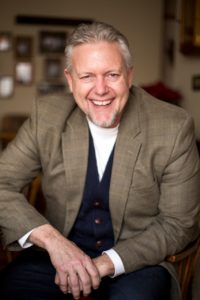You want to see a CHANGE?
Start with yourself: develop personal “habits of the heart.”
Changing ourselves is more difficult than changing culture.
Watch-listen to our 2 minute video (with full text below).
We need to exert authority over ourselves before exercise authority over others.
Subscribe to “Truth in Two” videos from Comenius (here). Mark is President of The Comenius Institute (website). Dr. Eckel spends time with Christian young  people in public university (1 minute video), hosts a weekly radio program with diverse groups of guests (1 minute video), and interprets culture from a Christian vantage point (1 minute video).
people in public university (1 minute video), hosts a weekly radio program with diverse groups of guests (1 minute video), and interprets culture from a Christian vantage point (1 minute video).
Picture Credit: Snappy Goat
FULL TEXT BELOW
Alexis de Tocqueville the French sociologist, visited America at the beginning of the 19th century to see what made the country distinctive. Tocqueville discovered a population which lived life based on unwavering, religious principles. He referred to these internal barometers as “habits of the heart.”
Like Tocqueville, we at The Comenius Institute believe “habits of the heart” are built on universal, transcendent, and biblical principles. We believe that people build these habits from the inside, out. The inside-out habit-renewal creates a transformed life. A transformed life is a self-disciplined life.
But what is the basis for our discipline? Knowledge that produces personal discipline has its best origin from revelation. Biblical “discipline” from Proverbs gives instruction, supervision, and correction. Discipline has a verbal rather than physical persuasion—an appeal to reason. Discipline beckons; she never coerces or drags the person in, kicking and screaming. The wise person applies discipline to herself, having learned a lesson. Discipline must not be taken lightly, nor does it come easily.
Reading stories is the best way to foster self-discipline. Aesop’s story about the frogs and the well tells us it’s best to look before we leap. The story about the fisherman and his wife explains that our greeds can displace our needs. From France comes the story of “The Magic Thread” about a boy that discovers that it is not a good thing to wish time would go faster. King Midas’s lust for more in the Greek tale of The Golden Touch may come at a terrible cost.
For years I have taught students that the twin pillars that uphold all the rest of life are gratitude and discipline. Without thankfulness, we acknowledge no authority outside of ourselves. Without discipline, we exercise no authority over ourselves. Tocqueville was right: the best change comes from inside-out, building habits of the heart.
 For Truth in Two, this is Dr. Mark Eckel, President of the Comenius Institute, personally seeking Truth wherever it’s found.
For Truth in Two, this is Dr. Mark Eckel, President of the Comenius Institute, personally seeking Truth wherever it’s found.



As I begin another semester instructing another group of college students throughout this teaching-learning process, this video and subject was a timely reminder for me. Thank you, Dr. Eckel!